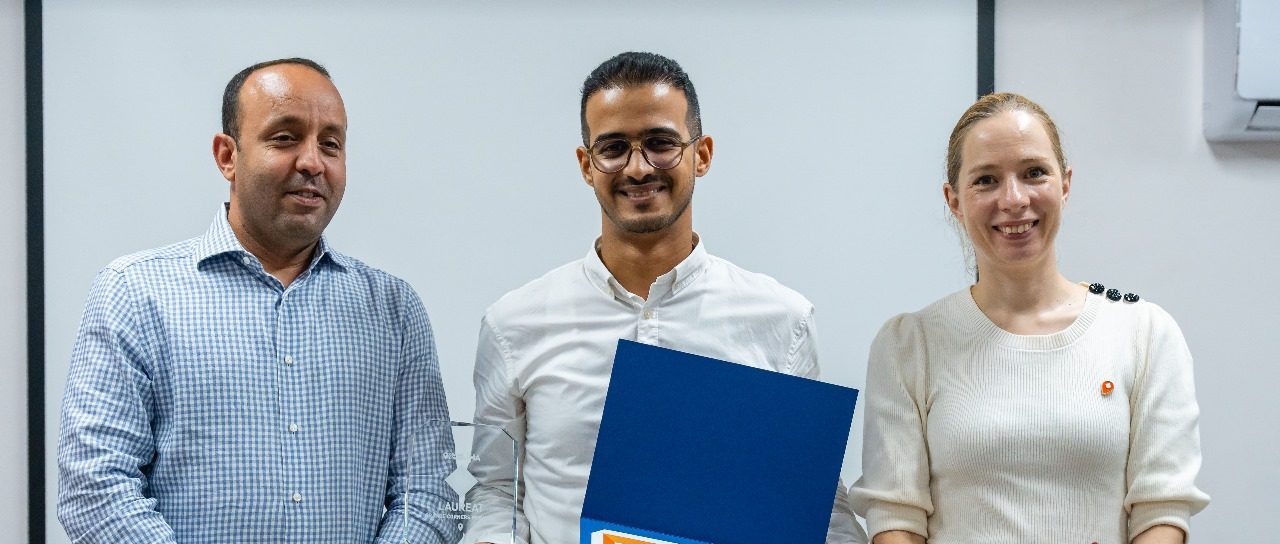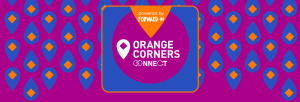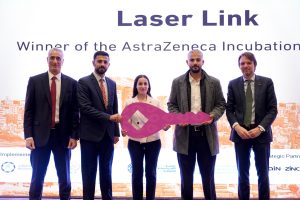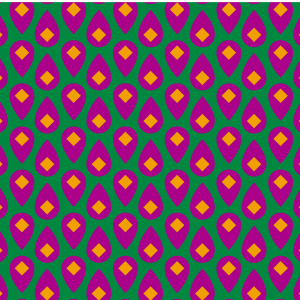From counting cherry tomatoes to tracking seed germination rates for nurseries, PCS Agri is rethinking how farms manage their crops. At the helm is Orange Corners Morocco alum Tahar Hamdani. In early 2023, he founded PCS Agri with a clear mission: digitise agricultural processes using cutting-edge technologies such as AI, computer vision and IoT. Their flagship mobile app can count fruits, predict harvests weeks in advance, and even help optimise water usage — a vital capability in water-scarce countries like Morocco. We sat down with Tahar to learn more about PCS Agri’s innovations, its growing global collaborations and how AI might reshape agriculture without replacing the people behind it.
Hi Tahar! Could you introduce yourself and PCS Agri?
My name is Tahar Hamdani, I’m an agronomy engineer with an MBA in Business Administration and a diploma in Strategic Management. In the last 10 years, I’ve worked as trial officer, sales rep and distribution manager for American, German and Dutch companies in Morocco and North Africa. And then in the beginning of 2023, I started PCS Agri. Our mission is to digitise agricultural processes using new technologies like AI, computer vision, IoT.
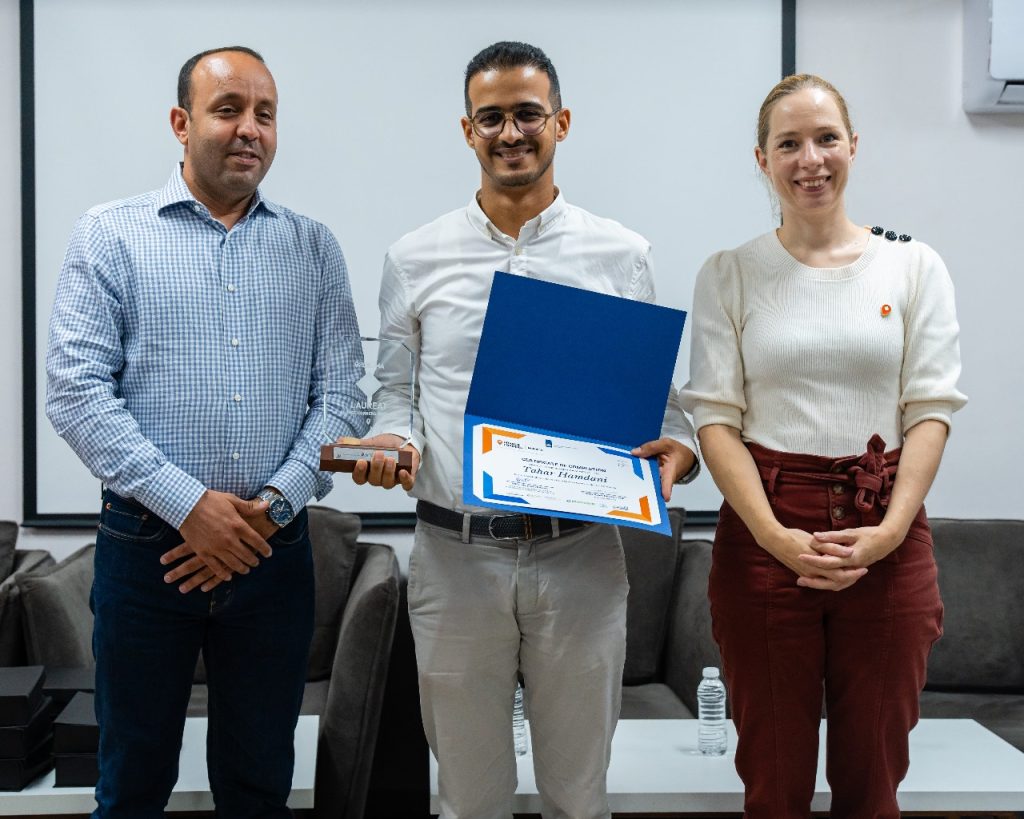
Our main product is a mobile app, which counts fruit. Cherry tomatoes, for example. It works pretty simple: you take a video, and the app does the counting. It counts the number of stems in bloom, the number of red fruits, and we analyse the fruit to classify them depending on ripeness. And then we visualise this in our dashboard, predicting your harvest for the next 2-3 weeks.
In retail and for export this predictability is super important. If growers deliver more produce than agreed upon beforehand, supermarkets only would want to take it against lower prices – or not at all. But if supermarkets know in advance a larger harvest is expected, they can work on promotions. But timing is crucial here: if growers don’t know their yield until it’s harvested, it’s too late. The app also helps growers plan their workforce: if you know how much you’re going to harvest, you can estimate the number of workers you need and where.
We started with cherry tomatoes, as Morocco is a major exporter of cherry tomatoes. Moroccans don’t eat a lot of cherry tomatoes, so the problem is very acute for these large export companies. If they can’t offset their produce, they lose money. The app also works with other fruits though. Blueberries for example, another important export product for Morocco.
Our other product tracks seeds. This is a useful solution for plant nurseries and seed companies. Imagine these companies sow millions of seeds, and they need to evaluate the germination and the quality of the plants every few days. Currently this is all done manually: workers go in and literally measure how large the plants are to classify their quality. Instead of spending hours on this, we help growers automate this process. Based on pictures our app does the counting and tracks the growth of the plants. Our app covers more than 17 types of fruits and vegetables, from melons and tomatoes to leek, pepper, radish and more. There’s a different AI model for each plant and crop.
Our mission? To digitise agricultural processes using new technologies like AI, computer vision, IoT!
Wouldn’t this lead to a lot of people losing their jobs?
There’s a couple of things to take into consideration here. This innovation helps current workers do their jobs in a far more comfortable way. And it allows them to do more, add value in a different way. We’re not reducing jobs, but optimising jobs, allowing them to focus more on other tasks. Imagine the backpains that come with counting plants manually all day long!
These days, just like in Europe Morocco also has a shortage of agricultural labour. Five years ago, any farm I visited, there were only Moroccan employees. Nowadays, every farm employ workers from Sub Saharan countries. The new generation of Moroccans, they don’t want to count plants anymore. AI makes jobs in agriculture more interesting again. And we’re also improving the gender disbalance. Previously these jobs were only done by men, because they were physically demanding. Apps like ours can help women enter this sector too.
AI makes jobs in agriculture more interesting again for young people. And we’re also improving the gender disbalance.
You were in the Netherlands very recently. How was your trip?
I always enjoy my visits to the Netherlands. When I worked for a Dutch company, I used to go at least once or twice a year. And even before I used to visit a lot, as the Netherlands is an important agricultural hub. I always love being there to see how technology can enhance agriculture and the lives of agricultural workers.
What’s happening in the Netherlands in terms of technology, automation I agriculture.. is really fantastic. For example, I spoke to two potential suppliers. One of them is developing agricultural sensors to monitor irrigation, chemicals, those kind of things. We don’t use a lot of that in Morocco, but it’d have huge added value. And with the second company we discussed how AI can optimise production. They have data points going years back, from the Netherlands but also from across the world. They can say exactly what’s needed to grow tomatoes, for example. We discussed doing a pilot project in Morocco, help Moroccan growers grow more with less.
Do you see a lot of interest from Dutch companies in your solutions?
Not just Dutch companies! We’ve got on-going pilots with customers from France, Spain, the US too. As PCS Agri we’re reached the kind of maturity that allows us to speak to the big companies. Our cyber security and IT are in order, we’re GDPR compliant and we’ve received permission from the Moroccan government to collect, store and process personal data information.
There’s a lot of interest from around the world, as our products answer a very specific need in a very simple way. We’re not selling hardware, just an app. Even Dutch companies are still counting manually today. They have their own laboratories where they check the seed quality. Germination rate is just one of the characteristics they test their seeds on, so they could potentially use our app in their labs. Or for customer service. Imagine a Moroccan customer would have a complaint about seeds he bought. This client could easily upload a picture in the app and the seller would have real-time information to determine whether a complaint is justified.
This time I was in the Netherlands mainly to discover another sector, the floriculture sector. We’re currently looking into expanding into flowers. With the right partner, we can create models for flowers as well, the same way we developed models for fruits and vegetables. For example, the radish model we developed with a Dutch partner. He downloaded the app, and when I called him he said that he would be particularly interested in having a model for radish as well. So he sent me 40, 50 pictures, and we created a model based on that. And with more testing, we increased the accuracy of the model, until right now our accuracy is about 99%. This goes far beyond what humans can do. With humans, there’s always a degree of subjectivity. When I do the counting and you do the same counting, I might find 89%, while you find 90%. With AI, we’re standardising the counting. Everything is always counted the same way.
Our AI mode’s accuracy is about 99%. This goes far beyond what humans can do!
Just like the Netherlands, Morocco is also suffering from climate change. Can PCS Agri help mitigate climate risks too?
One of the main challenges for Morocco is limited water resources. Fortunately in Agadir we have a desalinisation station, which delivers water to farms and consumers.. but we still need to optimise water use. PCS Agri can help save water too. Having the right yield estimation allows growers to optimise their use of resources. Knowing whether you’re going to harvest 20 or 100 tonnes in the next two weeks makes a huge difference in how much water and fertiliser you’re going to need.
As part of RVO’s SBIR programme, we’re currently working with Quantified Sensor Technology to combine our AI yield prediction tool with their sensors measuring soil humidity. Combing our products, this will allow growers to irrigate the right amount of water at the right time even more precisely.
Where do you see PCS Agri go in the foreseeable future?
Right now, we’re mostly focusing on expanding our customer base. Product wise, we’re also working on adding new features, increasing the added value we offer. We’d like our app to become a trustability system for a whole nursery or seed company. Because for a nursery, sowing plants is just one part of the operation. They’re also grafting, removing, delivering plants. If we include all those operations, it’ll also give nurseries an idea about stock availability, for example. Improving the app is a process that’ll probably never end. There will always be customers with feedback we’d want to include!
And the beauty about this kind of innovation is that all you really need is your smartphone. No need for expensive robots. I’m an agronomy engineer myself, we don’t need robots for everything. Sometimes a smartphone and a subscription to an app like ours is all you need. We have different packages for different customer segments, making it accessible to a large target audience across the world. Small farmers too deserve access to technology.
The beauty about this kind of innovation is that all you really need is your smartphone. No need for expensive robots. Sometimes a smartphone and a subscription to an app like ours is all you need.
Developing an AI solution usually requires no small investment. Have you already reached the point that you’re making a profit?
Not quite, but we’re on the right track. Two years ago I was the only employee, now we’re eight fulltime employees with very complementary backgrounds, from a data scientist and a software engineer to a designer and IoT technician. For further development we still rely a little on outside financial support though. In that regard, Orange Corners was super important for us. We got financial support as well as some training. Adil from the Netherlands Embassy is also a great help, he reaches out whenever he sees an opportunity for us.
Hopefully by next year, we’ll be able to reach the point where we’re able to pay all our costs ourselves. We don’t charge small agricultural companies a lot of money to use our solutions though. At the same time, a small fee means a low profit for us, so we’d need a lot of customers to turn this into a profitable startup. That takes time. So it’s good the big names are getting on board too. If a big international company would decide to use our application in all their facilities in the world, that’d make a major difference in getting profitable for sure!

